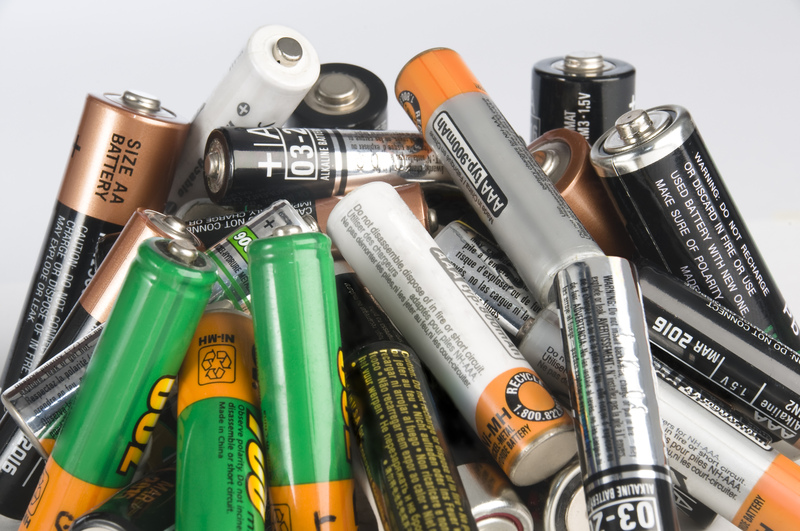
The Eco-Advantages of Recycling Electronic Waste
In the modern world, technology is intertwined with our daily lives. As a consequence, the rate of electronic waste disposal is skyrocketing, which poses a massive threat to our environment. Fortunately, recycling electronic waste offers a sustainable solution, bringing numerous ecological advantages. This article delves into the various eco-friendly benefits of recycling electronic waste, while providing comprehensive insights into its environmental significance.
Understanding Electronic Waste
Electronic waste, or e-waste, encompasses discarded electronic appliances ranging from outdated smartphones and laptops to household devices like television sets and refrigerators. The rapid technological advancements combined with the high turnover of electronic devices contribute significantly to the growing e-waste issue.
- According to the Global E-Waste Monitor, the world generated approximately 53.6 million metric tons of e-waste in 2019.
- Only about 17.4% of this e-waste was recycled properly.
The Environmental Impact of E-Waste
Before diving into the eco-advantages of recycling, it's essential to recognize the detrimental impact of improper e-waste disposal:
- Toxic Components: E-waste contains harmful substances such as mercury, lead, and cadmium. When electronics are improperly discarded in landfills, these toxins can leach into the soil and groundwater, causing irreversible damage to the ecosystems.
- Greenhouse Gas Emissions: The production and disposal of electronic devices contribute significantly to greenhouse gas emissions. Breaking down these items in landfills releases gases such as methane, further exacerbating climate change.
- Resource Depletion: Electronics are made of valuable materials like gold, silver, and platinum. Disposing of devices without recycling leads to wasted resources and increases the strain on extracting new raw materials.
Benefits of Recycling Electronic Waste
1. Conservation of Natural Resources
Recycling e-waste enables us to recover precious metals and other components from used electronics, reducing the need for new material extraction. This conservation effort helps in:
- Resource Efficiency: Through recycled devices, industries can use reclaimed metals and plastics to manufacture new products, promoting a circular economy.
- Reducing Mining Pressures: By re-utilizing material from e-waste, the demand for mining activities decreases, preserving the ecological balance of mining regions.
2. Protection of Environmental and Human Health
Proper recycling processes prevent the release of toxic pollutants into the environment. Here's how:
- Pollution Prevention: Managed e-waste processing facilities adhere to rigorous environmental standards, ensuring harmful substances are safely extracted and treated.
- Health Advantages: By curbing environmental pollution, recycling e-waste reduces health risks to human populations, especially in vulnerable communities near dump sites.
3. Energy Conservation
Producing new electronics from recycled materials generally requires less energy than manufacturing from raw material. Energy-saving advantages include:
- Reduced Energy Consumption: Recycling metals, for instance, uses up to 95% less energy than new metal production.
- Fostering Renewable Energy: By reducing energy requirements, recycling supports a transition to sustainable energy sources, aligning with global renewable goals.
4. Economic Growth and Job Creation
Beyond environmental benefits, e-waste recycling contributes to the economy by creating new business opportunities:
- Manufacturing Industry Support: Recycled materials lower production costs, aiding the expansion of tech manufacturing sectors.
- Job Opportunities: The recycling industry generates employment through jobs related to collection, processing, and redistribution of recycled materials.

How Can Individuals Contribute?
Each of us can play a part in the sustainable management of e-waste. Here are practical steps to consider:
- Educate Yourself: Understanding what constitutes e-waste and how to recycle it can enhance your participation in sustainable practices.
- Responsible Disposal: Utilize designated e-waste recycling centers and drop-off points for your old gadgets.
- Repurpose & Reuse: Before disposing of electronic items, explore possibilities for reuse or donation to extend their lifecycle.
Conclusion
As technology continues evolving, so will the challenge of e-waste disposal. The eco-advantages of recycling electronic waste are manifold, from conserving natural resources and protecting our health to encouraging economic growth and reducing the carbon footprint. Individual and collective actions towards responsible e-waste management will not only enhance ecological sustainability but will also safeguard the planet for future generations. By choosing to recycle, we endorse a healthier, more sustainable future.